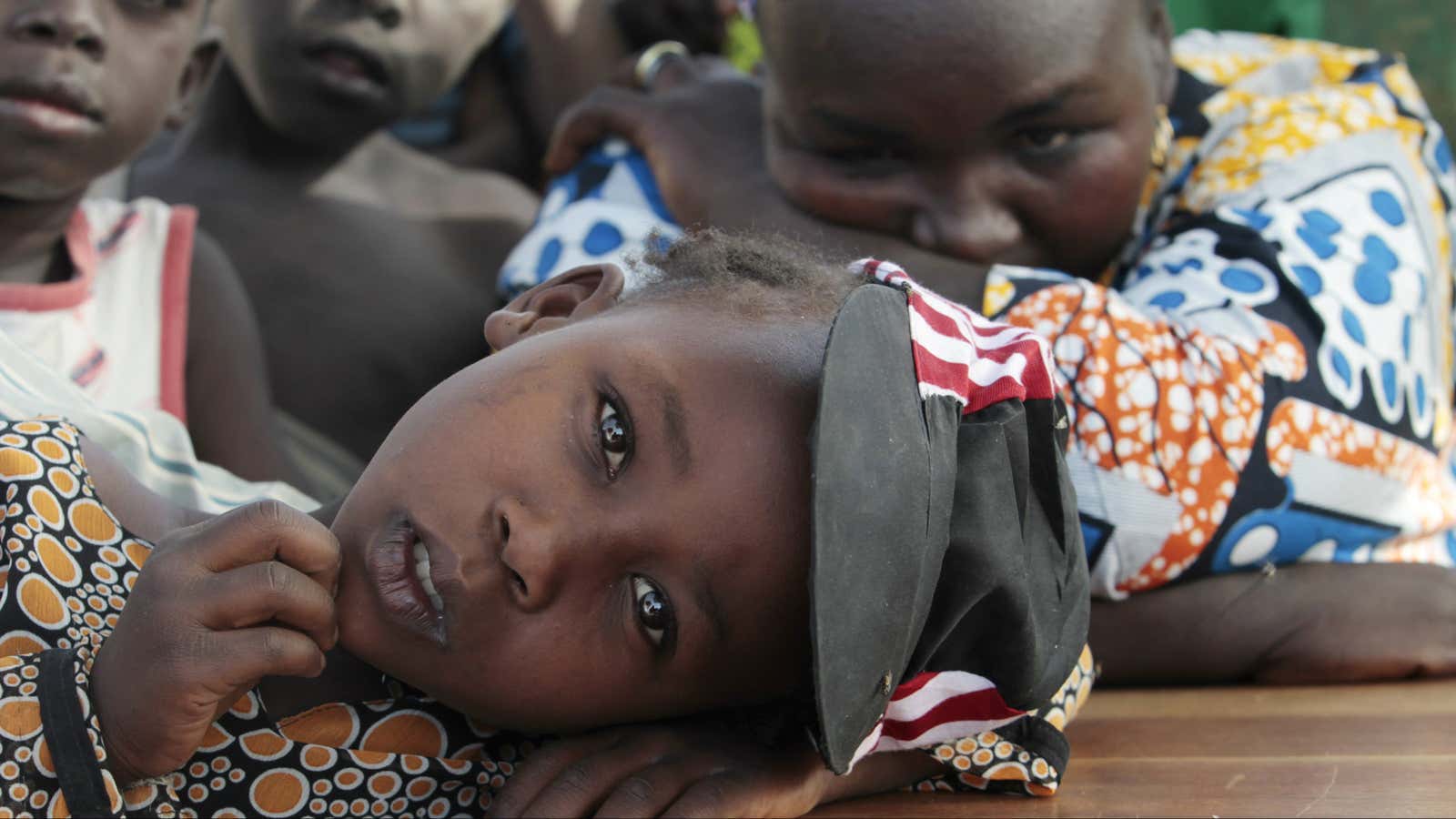Over the past year, Nigeria has made gains in the fight against Boko Haram, regaining territory and rescuing abducted citizens. But evidence of the terrorist group’s ruthless reign in the country’s northeast remains. Camps for displaced people who fled their homes in fear of being killed are overpopulated and lacking in amenities and food.
Last month, Nigeria declared a “nutritional emergency” in Borno, the state with the highest number of displaced people. This came after a Doctors Without Borders report in June uncovered what it described as a “catastrophic humanitarian emergency” at a camp in Bama, the second largest town in Borno. The scale of the crisis was amplified by another report, by UNICEF, which estimated the number of malnourished children in the state to be quarter of a million. “Some 134 children on average will die every day from causes linked to acute malnutrition if the response is not scaled up quickly,” Manuel Fontaine, UNICEF regional director for Western and Central Africa, said at the time.
In a bid to resolve the crisis, the World Health Organization says it is “scaling up” its emergency response activities in the region. A WHO assessment of the situation also reveals dire numbers: the rate of severe acute malnutrition is pegged at 14% while mortality rates are estimated to be four times higher than “emergency thresholds.”
“The immediate goal of WHO and its partners is to urgently reduce the rates of death and disease by rapidly scaling up life-saving health services,” the body said in a statement. “WHO will work closely with local officials and specialist agencies to address the health risks posed by malnutrition, disease outbreaks, and long-term lack of access to basic health services.”
For its part, the Nigerian government, aided by philanthropists like Aliko Dangote, Africa’s richest man, has sought to provide relief materials for the camps in the region. But corruption has posed a problem as officials of the local emergency agency allegedly stole and sold relief material for profit prompting Kashim Shettima, Borno governor, to order an investigation.
WHO’s intervention could also face a few hiccups as some areas where some camps are located remain susceptible to violence. Last month, a UNICEF aid convoy was attacked by assailants last month leading the UN to temporarily suspend aid delivery in the state.
